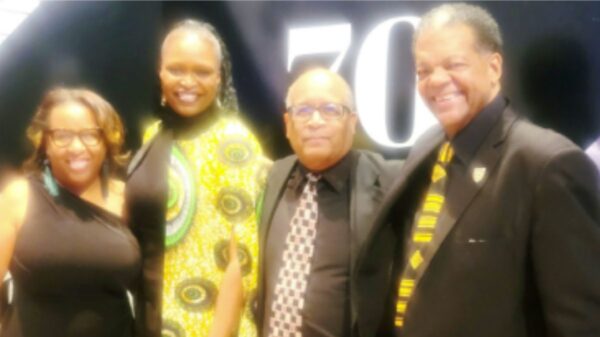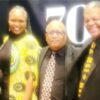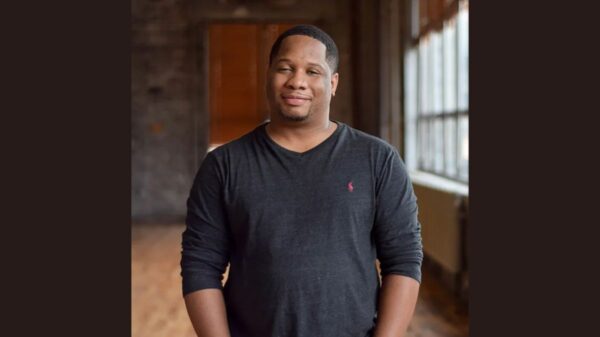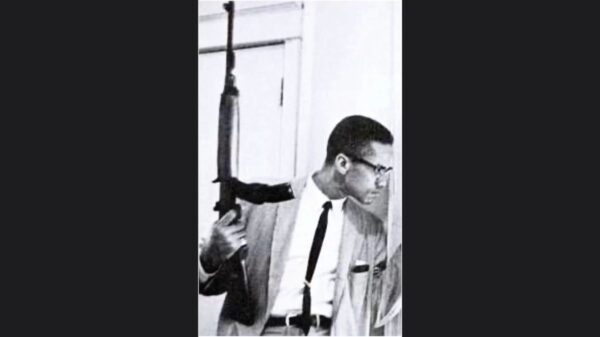By Tswelopele Makoe

BLACK people’s hair has been a sight of contention both historically and contemporaneously. For black women in Africa and across the diaspora, hair is more than just a stylistic choice.
The choices black women make when it pertains to their hair have a deeply intersectional impact on almost all aspects of their lives.
Hair is not only an artistic expression; it is tightly interlinked with identity and often comes with social and political implications. As of December 2023, the global black hair industry is reportedly valued at close to $2.5 billion (about R48bn). In fact, black hair rights are also protected by legislation.
Not only is the black hair industry proliferating, but it also remains a widely contested topic in our modern-day era. From slavery to colonialism to school rules, job requirements and various forms of institutional criticism, black hair is constantly re-emerging as the centre of attention.
The history of black hair and the social perceptions of black hair are closely linked. Hundreds of years ago, black hair was seen as a stark symbol of the identity of indigenous peoples and, as such, was often immediately cut off by captors.
Later, enslaved people would use their hair as tools of resistance, braiding seeds and grains from their homes into their hair as a form of protest and survival.
By the dawn of the 20th century, black women all over the world were staking a claim in the booming hair and beauty industry, many of them forming their own businesses, products, styles and inventive hair care techniques.
Women such as Madame CJ Walker are still widely celebrated as pioneers in the African-American socio-political movement of black hair.
By the 1950s and 1960s, the worldwide proliferation of black empowerment movements had sparked a new appreciation and acceptance of natural hairstyles in black communities, popularly represented by the afro.
Black hair in its most natural form was not only a symbol of self-empowerment but also a revolt against the Western and Eurocentric beauty standards that have lambasted natural black features and characteristics for so long.
Iconic activists such as Miriam Makeba, Diana Ross, Steve Biko, the Black Panther Party and the youth of the 1976 Soweto uprisings, to name a few, have donned afros as a symbol of pride and assurance in their identity.
They used their hairstyles as a symbol of fighting racial oppression, while promoting black beauty, liberation, and activism.
Other than public figures, the media plays an undoubtedly significant role in our society’s norms and beauty standards, or their perception thereof.
This was significantly highlighted by the 1950’s -1970’s proliferation of Drum Magazine, which had rapidly become a symbol of black urban life, black culture and black beauty.
Drum magazine gained continent-wide readership and global admiration. It was acclaimed for its authentic depiction of black life and black beauty. As such, it is, to this day, an iconic symbol of South African life and history.
Today, the black hair industry has exponentially grown. There are more products, styles and materials available than ever before. Not only is there a growing array of hair care options available for black women, but also for black males.
This not only shows the acknowledgement of the presence of males in the hair and beauty industry, but an acknowledgement of their unique needs.
From conditioners, to beard oils, to styling gels specifically catered to black male hair types, there is a clear differentiation in the products that are now being catered to, especially for black hair types.
The contemporary African continental scene sees black hair and beauty culture permeate through cities, villages and townships alike. The abundance of hair salons is clear as one of the foremost entrepreneurial endeavours, popularly driven by women.
This is a vital source of income for countless women, who account for a major portion of the informal economy. This is in nations where the vast majority continue to live below the poverty line throughout the least developed continent of them all. Ultimately, the black hair industry is a key measure of countless people’s survival.
What is especially pertinent about the contributions of black women to the global black hair industry is their unique perspectives on the needs of black hair, needs that have been historically sidelined by the Eurocentric beauty industry.
From varying textures, to maintenance techniques, to quality products and hair extensions, black hair is diverse and should be grappled with as such.
There is a plethora of black hair products and businesses that have been revered in recent years. Widely acclaimed products founded by black women in South Africa include NativeChild hair products, Girl Boss hair and beauty products, Masodi Organics beauty products and Afrobotanics products, to name a few.
In fact, famed entertainers and public figures such as Gail Mabalane and Pearl Thusi have launched their own haircare products, named Ethnogenics and Black Pearl, respectively, in order to cater to the niche black hair market in Africa.
Black hair has also been explored in academia. A common theme in these studies is the stark relationship between black women and natural hair and the direct link to the processes of identity formulation.
In some cultures, hair colours, styles and accessories convey particular messages about the context, the lineage, the status and even the history of a person. The hair of a black person can directly emulate their identity, heritage and ancestry.
The modern era has seen some contentions between what is popularly categorised as good hair and that which is not. Good hair is considered to be hair that is wavy or straight in texture, soft to the touch, or has the ability to grow long in a short span of time.
The debate around good hair has simmered down in recent years, but it highlights the internal conflicts that are still taking place due to the socialisation of white beauty standards. This spills over beyond hair, into skin colour, voice tones and accents, and even particular style choices.
The negative attitude towards certain styles of black hair reveals a socio-political aspect of this industry. The devaluation of black hair is deeply rooted in global history and painfully entrenched in our socialisation.
This movement is instilling and reaffirming the inherent beauty of black people all over the world. It is ensuring that future generations of black children will see themselves authentically represented in the hair and beauty industry.
A few years ago, pupils at Pretoria High School for Girls were in an uproar after being forced to chemically straighten their hair and not have “untidy afros”.
Zulaikha Patel, a 13-year-old student at the time, led the protest against the school, underscoring the school’s dubious code of conduct and bringing attention to institutional racism that seeks to discriminate against students with natural hair.
Hair discrimination is a widespread problem, rooted in systemic racism. The Legal Defence Fund reported that hair and grooming policies that prohibit natural hairstyles such as afros, braids, twists and locs have been used to justify the removal of black adults from their employment and the removal of black children from classrooms, denying them their human right to educational opportunities.
In the past, one of the more controversial styles of black hair has been locs (or dreadlocks). Ancient Egyptians, ancient Ethiopians and ancient Aztecs have been credited as the first recorded societies of people with locs.
Shiva, one of the principal deities of Hinduism, was said to have “Tajaa” (meaning twisted locs). In the Old Testament of the Bible, locs are repeatedly mentioned, particularly in reference to the story of Samson.
Today, locs remain a symbol of rebellion and activism against Eurocentric beauty standards. All over the world, people wear locs for various spiritual, cultural, religious and personal reasons. Locs place an emphasis on spirituality, wisdom and communal values — a connection to the divine, to nature, or to a way of life.
The movement of black hair is developing remarkably. The re-popularisation of natural hairstyles featuring styles such as Fulani braids, Bantu knots and intricate cornrows is showing a collective shift towards Afrocentric beauty standards.
New voluminous hair extensions that emulate natural black hair textures show that the beauty industry is making a better effort at representing every woman rather than the select few.
The movement of black hair is ever-changing and increasingly profitable, and it is vital that black business owners are at the forefront of this industry.
This is not only about having a personal understanding of the needs of one’s clients, but also taking a leadership role and actively shaping the trajectory of the industry. From services, to products, to educational collaborations, the black hair industry is vibrant and highly dynamic.
Black women all over the world have a unique opportunity to partake in the transformation of dominant beauty standards and be an authentic representative voice for the millions of black people who share a similar experience.
Black hair will forever remain a global trend. Black hair care results in increased knowledge and awareness of the self, endorsement of the self and upliftment of the self.
This results in the awakening of self-worth in black communities, which essentially culminates in the accentuation of the Black Consciousness philosophy. It’s about upholding the principle that black is beautiful. This high regard for self-love, in time, entrenches a sense of self-care, which is vital to one’s personal, mental and spiritual growth.
Black hair is rooted in black identity. One’s practices, traditions and languages are all intertwined in the identity formulation of oneself. Understanding one’s identity is absolutely fundamental to self-actualisation and self-advancement.
As acclaimed author and activist Alice Walker intently stated: “The most common way people give up their power is by thinking they don’t have any.”
* Tswelopele Makoe is a Gender & Social Justice Activist, published weekly in the Sunday Independent & IOL, Global South Media Network and Eswatini Times. She is also an Andrew W. Mellon scholar, pursuing an MA Ethics at UWC, and affiliated with the Desmond Tutu Centre for Religion and Social Justice. The views expressed are her own.







You must be logged in to post a comment Login